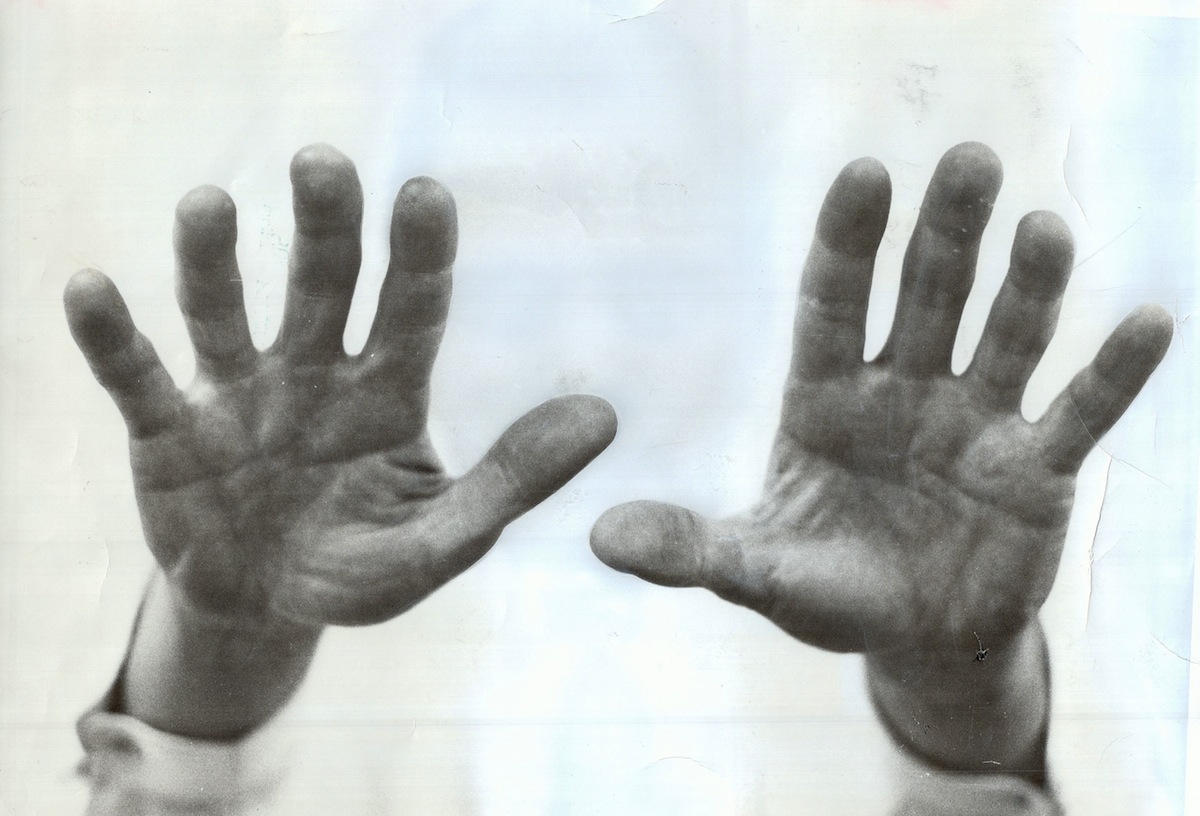
The list of famous lefties inevitably goes back deep into history, to Charlemagne or Leonardo da Vinci. But it was only in the last few decades that being left-handed ceased to be a real problem for many people, and instead became something that could be celebrated.
As TIME explained in 1969, “southpaws, gallock-handers, chickie paws and scrammies” were seen as sinister—literally, since the word means “left”—for centuries. “In the Middle Ages, for instance, the left-hander lived in danger of being accused of practicing witchcraft,” the article explained. “The Devil himself was considered a southpaw, and he and other evil spirits were always conjured up by left-handed gestures.”
One possible reason that aura of suspicion may have changed, TIME suggested, was a lot less complicated than anything having to do with evil spirits. It was just a matter of simple economics. At the time, lefties had few options in terms of the everyday items that depend on handedness; from sports equipment to kitchen items, most things designed to be held were only optimized for one direction. That situation meant there was an untapped market for leftie goods, just waiting for a smart business owner to jump. And jump they did:
A few shops now cater to left-handers who either cannot or will not adjust to a right-handed world. One of the most interesting—run by a righthander, surprisingly—is Anything Left-Handed, Ltd. in London’s West End. Its director, William Gruby, 39, opened his store late last year after giving a dinner party at which he and his wife found that their four guests were all left-handed and all perfectly willing to complain bitterly about the nuisances of life in a right-handed world. Doing market research, Gruby found that shop clerks treated his inquiries with some Dark Ages-style rudeness. When he asked for a left-handed can opener, for instance, he was asked if he wanted a left-handed can as well. He stocks left-handed versions of most types of kitchen hardware, irons, and also carries artists’ palettes, dressmakers’ scissors, surgeons’ knives, pruning shears and cricket bats.
Not everywhere caught on equally quickly—a few years later, TIME ran a story about the persistence of the stigma in Japan—but barriers were being knocked down. And, finally, that knocking might happen with left-handed tools.
Read more from 1969, here in the TIME Vault: Left in a Right-Handed World
Barack Obama
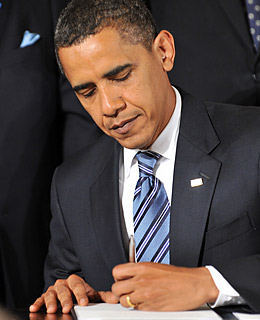
In the past hundred years, the U.S. presidency has veered more and more to the left — not in policy, but in handedness. Barack Obama is the latest to join a long list of left-handed presidents from the 20th century: James Garfield, Herbert Hoover, Harry Truman, Gerald Ford, Ronald Reagan, George H.W. Bush and Bill Clinton were all southpaws.
What makes lefties so electable? Some experts think left-handed people have a greater aptitude for language skills, which may help them craft the rhetoric necessary for political office. And as for the bout of recent left-handed presidents, some think it’s because teachers only recently stopped working to convert lefties to righties at an early age.
Bill Gates
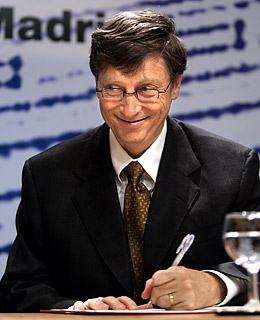
Claiming the nation’s richest man among their number is a source of considerable pride for America’s society of southpaws. In fact, the Microsoft titan and philanthropist is one of a surprising number of U.S. business moguls to be left-handed, including Henry Ford, John D. Rockefeller and former IBM head Lou Gerstner. But the club seems to be a guys-only fraternity — research suggests that while left-handed men tend to earn more than their right-handed colleagues, there is no similar advantage for women. A study by the National Bureau of Economic Research floated the idea that left-handed men favor “divergent” thinking, a form of creativity in which the brain moves “from conventional knowledge into unexplored association.” Maybe that’s what it takes to develop a net worth estimated at $57 billion.
Oprah Winfrey

The talk-show queen doesn’t need much more to set her apart from the rest — what with her estimated $2.9 billion fortune and a magic ability to sell books just by glancing at them — but she also has the distinction of being a member of the left-handed club. Since men are more likely to be left-handed than women, that makes Oprah doubly impressive. She’s in good company: Other show-biz ladies of the southpaw persuasion include Whoopi Goldberg, Julia Roberts and Angelina Jolie (live-in boyfriend Brad Pitt is also a lefty).
Babe Ruth
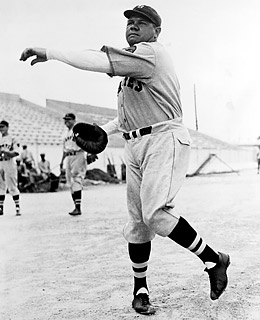
Even casual baseball fans — heck, even your grandma — are familiar with the Sultan of Swat and his 714 home runs. But fewer people realize that early in his career, Ruth was also one of the game’s élite pitchers. Between 1915 and 1919, he won 85 games (plus three World Series contests) while notching an ERA of 2.02, before the Boston Red Sox decided he’d be more valuable at the plate.
But while Ruth is baseball’s most decorated left-handed player, he’s hardly the only Hall of Fame southpaw. It’s almost impossible for lefties to thrive in certain positions — including catcher, shortstop, second and third base — because they are required to throw awkwardly across their bodies to make plays in the field. But southpaws have distinct advantages on the diamond. Lefty Grove, Sandy Koufax, Warren Spahn and Steve Carlton are among the left-handed pitchers who have frustrated hitters. Lefty batters also do better at the plate: they do better against right-handed pitchers and stand a precious step or two closer to first base, advantages that sluggers from Ty Cobb and Stan Musial to Ted Williams and Barry Bonds have clearly used to their benefit.
Napoleon Bonaparte
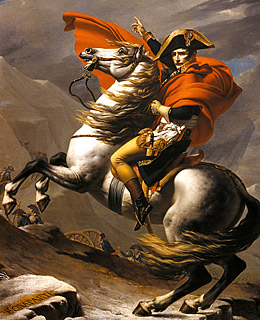
Legend has it that Napoleon objected to the time-honored military practice of marching on the left side of the road with weapons at the ready in the right hand: it put lefties like him at a strategic disadvantage. Once in power, the story goes, the French emperor — whose queen, Josephine, was also a southpaw — ordered his armies to switch sides. Civilians in countries he conquered had to do the same. Hence, supposedly, the rules of the road as we know them were born, which also explains why the British (who, along with the Prussians, defeated Napoleon at Waterloo) still drive on the left.
Leonardo da Vinci
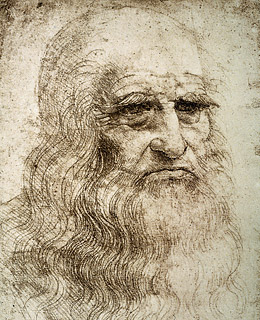
Leonardo da Vinci, one of the most brilliant men in history, took his sinistrism to an extreme: he wrote from right to left. Historians have plenty of creative theories to explain this so-called “mirror writing” — named because you had to hold it up to a glass to read it. For example: perhaps he was trying to make it harder for people to sneak a peek at his notes and lift his ideas. One argument, however, is less fanciful but perhaps more logical: writing in ink from left to right was too messy because Leonardo was a southpaw. Some historians have suggested that da Vinci’s left-handedness added to his genius, because it forced him to think and see in an extraordinary way. (If so, he wasn’t alone: fellow left-handers include rival Renaissance titans Michelangelo and Raphael.)
Marie Curie
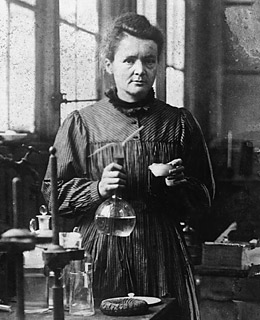
Not only was atomic scientist Marie Curie left-handed, but she was the matriarch of a whole family of accomplished, southpaw scientists. Curie, who discovered the principles of radioactivity and won two Nobel Prizes, was married to fellow lefty Pierre Curie, who was instrumental in helping Marie’s atomic research and shared one of her Nobel awards. Historians believe their daughter, Irene, was also left-handed. Irene went on to win a Nobel Prize of her own with her husband — who, you guessed it, was also left-handed.
Lefty scientists are hardly unusual. In addition to the Curie clan, Einstein, Newton and Alan Turing — founder of modern computer science — all were left-handed as well.
Aristotle
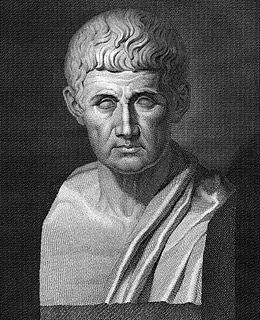
Some of the earliest works of western philosophy and science were written with a left hand. Aristotle, he of the scientific method, early physics, astrology, meteorology and ethics, penned an exhaustive list of works that laid the foundation of much of modern science. And his philosophical musings influenced a much later, left-handed thinker: German philosopher Frederick Nietzsche.
Ned Flanders
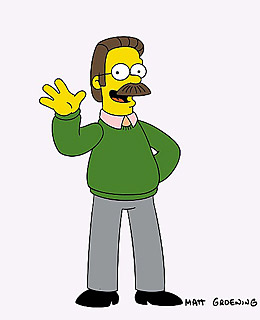
Ned Flanders is left-handed, devoutly religious, and has a surprisingly chiseled physique. Oh, and he’s fictional.
In Season three of The Simpsons, Homer Simpson’s next door neighbor uses his life savings to open the Leftorium, a store that specializes in products for left-handed people. Homer Simpson sends the store out of business but feels guilty about it and helps revive it. Although the store only appears in one episode — “When Flanders Failed” — Flanders occasionally references it throughout the series, so we know it’s still around. According to Springfield’s most religious lefty, the Leftorium is suffering now that a left-handed megastore, Left-Mart, opened up nearby.
Jimi Hendrix
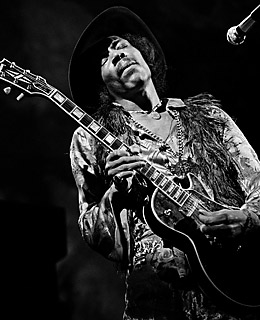
Jimi Hendrix played guitar upside down and backwards, and to his devout fans’ parents, it probably sounded like it. The six-string revolutionary favored a right-handed Fender Stratocaster, slung upside-down across his shoulders, that didn’t even need to be restrung: Hendrix taught himself how to hit the strings in reverse order, producing a unique sound and allowing him to alternate between left- and right-handed playing if he so desired. (He could play right-handed but generally preferred not to).
Hendrix learned to play in Nashville blues clubs before touring as a back-up musician for the Isley Brothers and Little Richard. He broke out on his own in 1966, but his career was cut short by a drug overdose in August 1970. Hendrix’s use of distortion and wah-wah effects warped and extended notes in ways no other player could quite achieve; for years, right-handed guitarists have tried to emulate his sound, going so far as to put left-handed necks on their own guitars.
There was one technique not impacted by Hendrix’s lefthandedness: setting his guitar on fire. For that, he used both hands.
This article was originally published on Aug. 13, 2009, and has been updated with the latest relevant figures.
More Must-Reads from TIME
- How Donald Trump Won
- The Best Inventions of 2024
- Why Sleep Is the Key to Living Longer
- How to Break 8 Toxic Communication Habits
- Nicola Coughlan Bet on Herself—And Won
- What It’s Like to Have Long COVID As a Kid
- 22 Essential Works of Indigenous Cinema
- Meet TIME's Newest Class of Next Generation Leaders
Write to Lily Rothman at lily.rothman@time.com